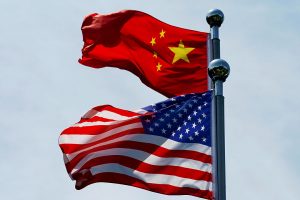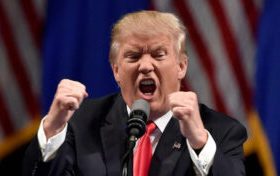When Chinese President Xi Jinping and his Indonesian counterpart Joko Widodo sat together last week to watch a trial run of a new China-backed high-speed railway, it was a clear sign of their expanding economic involvement. “Begin,” was the command they gave, as the train pulled out of a Bandung station.
Projects like this are key to Beijing’s strategy to compete with the US for clout in Southeast Asia, as it looks to cement its position in a region that counts China as its biggest trading partner. Two-way trade grew 13.8% year-on-year in the first 10 months of 2022, reaching $798.4 billion. The raft of new infrastructure and trade deals signed at a series of summits over the last two weeks, shows China only seeks to enhance this further.
Here’s what was agreed:
INDONESIA
Mr. Xi and Jokowi, as the Indonesian president is known, signed agreements on the sidelines of the Group of 20 in Bali, bolstering digital economy cooperation and increasing bilateral trade. China also pledged to encourage companies to support the development of Indonesia’s $34 billion new capital in Borneo, as well as an industrial park on the island.
Jokowi, who referred to Mr. Xi as “big brother” when the two met, has turned to Beijing to fuel his ambitious infrastructure projects before his final term in office expires in 2024. China has been Indonesia’s largest trade partner for the past decade, with foreign investment doubling to $3.63 billion in the first half of this year, according to Indonesian government data.
CAMBODIA
Chinese Premier Li Keqiang used his trip to close ally Cambodia, for the Association of Southeast Asian Nations summit, to ink more than 10 cooperation agreements with Prime Minister Hun Sen. The deals ranged from agriculture to infrastructure, education, traditional Chinese medicine and science and technology.
The two countries also signed a $1.6 billion deal to build an expressway from the Cambodian capital to the Vietnamese border. China has invested heavily in the country, including upgrades to the Ream Naval Base along Cambodia’s southwestern coast. That’s raised concerns in the US, including from President Joseph R. Biden, Jr., over possible activities by China’s military there.
China is by far Cambodia’s largest trading partner, and accounted for 43% of the nearly $3 billion in investment it approved in the first half of this year, Xinhua reported.
THAILAND
Mr. Xi sought greater “synergy” when he met Thai Prime Minister Prayuth Chan-Ocha on the sidelines of the Asia-Pacific Economic Cooperation forum in Bangkok on Nov. 19. The two sides signed a five-year strategic cooperation agreement, and a deal promoting Belt and Road projects.
China said it wanted to strengthen cooperation in trade, tourism and infrastructure, and cultivate new growth areas like the digital economy, new energy vehicles and technological innovation. It also stressed the need to speed up China-Thailand-Laos railway cooperation.
SINGAPORE
China welcomed Singapore’s “in-depth participation” in China’s “new development paradigm,” Mr. Xi said in his meeting with Prime Minister Lee Hsien Loong in Bangkok, according to a readout. Mr. Xi also said efforts need to be made to upgrade their bilateral free trade agreement and implement the previously agreed New International Land-Sea Trade Corridor.
In talks between their defense ministers, the two nations also agreed to hold joint military exercises next year, and set up a hotline between ministries. China has been Singapore’s largest trading partner since 2013.
PHILIPPINES
Mr. Xi said China views its relations with the Philippines from a “strategic height” and they should improve their cooperation quality, after meeting Philippine President Ferdinand R. Marcos, Jr., in Bangkok on Nov 17. China also expressed a willingness to import more quality agricultural and other products, and said the two sides must handle differences properly when it comes to the South China Sea.
Amid the ongoing territorial dispute, the Philippines has also been strengthening security ties with the US, with an agreement to start building training facilities and warehouses on the nation’s military bases next year. — Bloomberg








